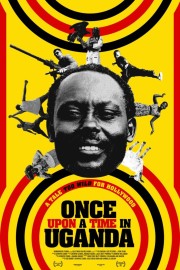Once Upon a Time in Uganda
A movie like the ones made by Isaac Nabwana have a genuine love of storytelling and film craft that transcends the fact that they don’t look like a big-budget blockbuster. When I began reviewing films from filmmaker requests, I found that so long as the stories connected with me, any technical issues weren’t that important to me. In “Once Upon a Time in Uganda,” we come in after Nabwana has started to become a viral sensation for his action films, and as the outside world comes knocking. How will that impact what Nabwana is doing? That is the premise of the film.
As moviewatchers, we owe it to ourselves to expand our horizons beyond the typical movies we’re familiar with. As we get glimpses of Nabwana’s movies, they are very cheap action films with low-rent visual effects, but they have an energy and affection for filmmaking that is infectious. One of those infected is Alan Hofmanis, a film programmer who is in on Nabwana’s work from the get go, and wants to help bring it to the masses. He travels to Uganda, and he and Isaac hit it off immediately. They form a bond that involves Alan becoming a part of the production crew. But when they seem to have different ideas of what the future for Isaac’s work should be, tensions form between the two.
The term that is coined for Nabwana’s films is Wakaliwood- he’s basically a studio unto himself not unlike Roger Corman. Growing up watching action movies, that is basically what he makes. His philosophy is that this is showing a different side of African culture than sober dramas would, and he’s absolutely correct in that mindset. There are essays to be written about why action movies drive international box-office, but spectacle is, indeed, a universal language in cinema. What inspires Hofmanis to upend his life is the passion Nabwana infuses in his work. Seeing the two struggle with their disparate ideas on how to get Isaac’s work out there to a wider audience is a tale as old as time when it comes to differences creatives can have when money is the objective. By the end, the two have to go their separate ways briefly, but when they come back, that is the nature of a strong friendship, and a creative direction forward that time apart can only point to. Director Cathryne Czubek is an appreciator of Nabwana’s style and passion, and she captures the passion the other people in the village who work on the films with him get caught up in. This is a fun and insightful look at creating art on the fringes, and the challenges of what happens when it’s ready to be shared.










